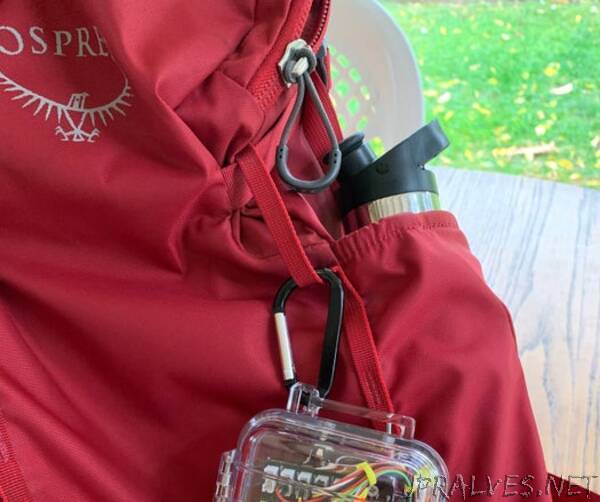
“Welcome to the Instructable for the DIY BackpAQ Personal Air Quality Monitor V2! As we did in the Instructable for BackpAQ Version 1, we will build a high-quality instrument capable of measuring and monitoring the most common sources of air pollution: particulates (PM1, PM2.5, PM10) and gaseous (TVOC, eCO2). More about these in upcoming sections.
The BackpAQ Project
The BackpAQ project is part of a middle and high school STEM curriculum that promotes learning about and experience with the monitoring of air quality (AQ) particularly in disadvantaged communities, and drives engagement among underrepresented youth in STEM activities. Key to the program is deployment of a suite of community-based mobile air quality monitors that leverage new low-cost sensors. These handheld units can be readily assembled by advanced middle-school and high school students and other STEM-oriented youth who are motivated by interest in obtaining, understanding and sharing hyper-local air quality data.
What we’ll build
For this project we are going to build a BackpAQ V2 personal air quality (AQ) monitor. As you can see from the accompanying photos, BackpAQ is designed to be easily carried, clipped to a backpack, or placed in a mobile scenario such as a vehicle or other transport. As BackpAQ utilizes GPS positioning technology, the AQ information we collect will be geo-positioned no matter where the monitor goes. These student-built monitors, encased in a lightweight polycarbonate box, weigh less than a pound and are powered by rechargeable LiPo batteries. They feature carabineers and nylon straps for easy fastening to a backpack or bicycle frame. What we’ll measure As designed, the monitors will measure and display criteria pollutants PM1, PM2.5, and PM10 concentrations in ug/m3, as well as display the US EPA Air Quality Index (AQI). Gases such as TVOC and CO2 are also easily monitored with BackpAQ and can be optionally built in. Monitoring of additional pollutants, such as CO, O3, NO2 and SO2 are possible future enhancements. The latest version pairs with a smartphone app to provide an interactive user experience and allow customization and personalization of monitored data and how it’s displayed. BackpAQ automatically uploads data to the Thingspeak cloud where it can be visualized using powerful analytics, and shared with other students or local community officials.
What we’ll learn
To begin with, we’ll learn design, build and fabrication techniques - along with some pretty powerful electronics, Internet-of-Things (IOT), and sensor technology skills. Perhaps most importantly, we’ll learn how to curate and analyze data we capture from the monitors. Learning how to develop and apply critical judgement to the data and subsequent reporting and sharing of findings and implications are key outcomes of this project.
Outcomes
The intended outcome of this project is twofold: one, obtain a richer, deeper understanding of air pollution, where it comes from, how to measure it, how to harness powerful analytics to responsibly report and share findings, and (hopefully) gain some insight that will enable ordinary concerned people to do something about it. And two, build a monitoring device - BackpAQ - to better understand the science and engineering behind sensors, IOT, the Maker Movement, and have hands-on involvement with one of the more critical challenges facing communities today.”
